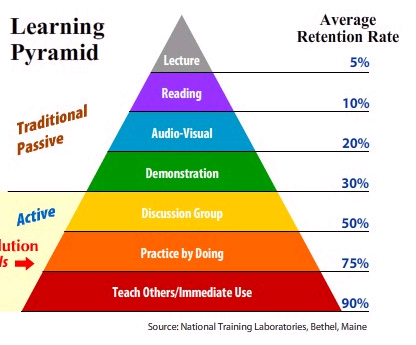
Planning Education |
Why is developing a plan for education important?Jay Bahlis, BNH Expert Software, has outlined a six-step process for aligning training with organizational goals in a white paper entitled Blueprint for Planning Training. Bahlis states, "The process includes a simple technique for converting qualitative evidence into a qualitative measure to further justify and prioritize training activities”. According to Bahlis, his process unfolds as follows:
Education is not always the answer.It is important to clearly identify the problem before drafting solutions to solve it. When evaluating the problem it is important to understand if the central focus is a knowledge deficit on the learner's part about the issue or an inability for learners to apply what they already know to real situations. What resources are available at CHHS?Many different resources are available for education. The choice of the resource to use will depend on the topic and the learning style of the participants. It is important to match the learner's needs and the topic when selecting a format for the education. For diverse groups of learners, blended learning is considered the best practice. CHEX Knowledge Exchange online courses
|
How do I determine the deliverable?
How is education planning supported at CHHS?
Online Learning Request: Things to Think About
Clinical Education Operations Council (CEOC)
Guide to Estimating Writing Projects (PDF - from writingassist.com)
Forms
CEOC Pre-Review Worksheet (see Joan Totka for questions on use)
System/Product Implementation Rating Tool (see Chris Jensen for questions on use)
